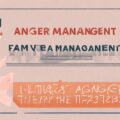Narrative Therapy: Understanding People’s Life Stories
Narrative therapy is a form of counseling that views people as the experts in their own lives. Rather than seeing people as pathological, narrative therapists believe we all have strengths and abilities we can draw from to face life’s challenges.The goal of narrative therapy is to help people explore and shift the stories they tell themselves about who they are, their relationships, and their place in the world in ways that are more helpful and hopeful. A key concept is that our stories are ever-evolving and can be retold or re-examined to open up new possibilities.
Narrative Therapy Techniques
Some common techniques used in narrative therapy include:
- Externalizing problems – Instead of labeling the person as the problem, externalizing the issue to help create distance from it.
- Deconstructing dominant stories – Questioning and unpacking unhelpful stories the person believes about themselves.
- Identifying unique outcomes – Noticing times when the problem wasn’t such an issue to tap into strengths and abilities.
- Re-authoring conversations – Co-constructing new stories about identity and possibility.
The counselor takes on the role of a curious guide to support the person in this process while respecting their life wisdom and agency in determining their path.
Why Consider Narrative Therapy Training?
Narrative therapy training appeals to those seeking an approach centered on:
- Humanistic, strengths-based counseling philosophy
- Social justice and cultural sensitivity
- Creative and collaborative therapeutic process
Many also appreciate how narrative therapy integrates well with other models.
Choosing a Narrative Therapy Training Program
When researching training programs, look for those that provide:
- Opportunities to apply narrative techniques through role plays
- Cultural diversity and inclusion
- Exposure to leading narrative practitioners
- Discussion of latest narrative therapy developments
Programs can vary widely so check accreditation and scope of training offered.
Pursuing Narrative Therapy Certification
While there are no legal requirements to practice narrative therapy, certification demonstrates specialized expertise. Two options include:
Certified Narrative Therapist
Offered through the International Narrative Therapy Association, this involves extensive training, supervision, practice hours and an exam.
Certified Narrative Practitioner
Provides a credential for early career clinicians via the Narrative Practitioner Consortium including a 36-hour course, case consultation and portfolio.
Narrative Therapy Offers Hope and Possibility
With its focus on people as resourceful storytellers of their own lives, narrative therapy provides a uplifting framework for counseling centered on human dignity, compassion and our shared humanity.
Frequently Asked Questions
What is narrative therapy?
Narrative therapy is a counseling approach that views people as experts in their own lives with innate abilities to face challenges. The therapy focuses on helping reshape unhelpful stories people believe about themselves into more helpful narratives about identity and possibility.
What techniques do narrative therapists use?
Common techniques include externalizing problems, deconstructing dominant stories, identifying unique outcomes of strength, and re-authoring conversations to develop alternative preferred stories.
What kind of training is required to become a narrative therapist?
There are no legal requirements but specialized training programs are available, including masters or PhD programs focused on narrative therapy. Shorter certificate programs also help develop competency. Ongoing consultation, supervision and practice are also critical.
How do you become a certified narrative therapist?
The International Narrative Therapy Association offers a rigorous Certified Narrative Therapist credential involving extensive coursework, practice hours, supervision, exam and renewal requirements. The Narrative Practitioner Consortium also offers Certified Narrative Practitioner for early career professionals.
Why is continuing education important for narrative therapists?
Like any counseling approach, ongoing learning helps narrative therapists stay up to date on the latest developments, culturally-informed best practices, creative techniques and theoretical understandings to provide the most helpful guidance for the people they work with.









